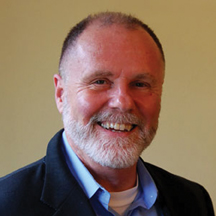 Greg is paralyzed by his fear of being rejected by other gay men. Whenever he’s at a club or a gathering where other gay guys are present, the people he absolutely avoids are the ones who interest him. He’s so terrified that he’ll be devastated if they snub him that he won’t approach them in the first place. The predictable consequence is that he has almost no sex life and remains single. What can you do if you find yourself in this predicament?
Greg is paralyzed by his fear of being rejected by other gay men. Whenever he’s at a club or a gathering where other gay guys are present, the people he absolutely avoids are the ones who interest him. He’s so terrified that he’ll be devastated if they snub him that he won’t approach them in the first place. The predictable consequence is that he has almost no sex life and remains single. What can you do if you find yourself in this predicament?
Ask yourself this question: When you’re at a social gathering and that hot guy ignores you—because he’s half drunk, or preoccupied with his own fear of rejection, or his personal problems, or because your body type isn’t what he’s looking for—what have you actually lost that was essential to your well-being? “I need to be validated by other people.” I hear that phrase often. If that guy on the other side of the bar doesn’t look at you does that make you “invalid”? What does that mean? That you’re empty, unlovable, not worthy of being seen? How does it happen that your sense of being alive or being worthy comes to depend on the casual glances of complete strangers?
I understand that no one likes being rejected. But here are a couple of ideas that might help you not feel completely devastated when it happens:
First, consider that when someone rejects you, that person is giving you information about himself or herself, not about you. If a man tells you, “You’re the hottest guy who ever lived,” he isn’t really telling you about yourself, as much as you might like to believe he is. What he’s saying is, “I’m strongly attracted to you,” which is information about him. Similarly, if he rejects you, he is giving you information about his own feelings and preferences, not about you.
Second, remember that everyone experiences rejection. The important thing to do here is not to personalize these experiences—that is, to resist the temptation to see them as commentary on your worth as a human being, or as unique experiences that happen only to you. No one is universally loved. We all find rejection unpleasant, but with practice, it’s possible to learn to take it in stride. Here’s one way to practice taking it in stride:
Don Clark, in his classic book, Loving Someone Gay, describes a “rejection game” that he found helps people to tackle the fear of rejection directly. The goal of the game is actually to see how many social rejections you can earn in a single day. The game has three rules. First, your attempted interaction must be based on your real feelings of attraction, sexual or otherwise. Second, you must anticipate being rejected. And third, you must be honest and respectful in your words and deeds in the interaction.
The game works like this: When you notice that someone interests you, anticipate that the person will reject you, and then show your interest by saying hello and trying to make small talk. If the person turns away or in some other way makes it clear that he or she isn’t interested, it counts as one rejection. On the first day your goal is to get one rejection, on the second day it is to get two, and so on.
According to Clark, “Interesting things happen. You begin to worry less about rejection as you focus on earing your increased required score for the day without spending your entire day doing it. Not everyone you thought would reject you does reject you and your self-esteem improves. As you have more contact with individuals who are attractive to you, your social skills in interacting with people improve and it becomes more difficult to find rejection. Finally, you reach a saturation point when you realize that the game is annoyingly time-consuming rather than the anxiety-provoking task it was at the beginning, since the rejections you experience no longer matter to you as much.”
The point of this game is that as long as we act on the idea that rejection is so terrible that we have to avoid it at all costs, we continue to feel paralyzed. But if we change our strategy and actually seek it out, we will probably discover that it is not the devastating experience that we imagine it to be.
Tom Moon is a psychotherapist in San Francisco. For more information, please visit his website http://tommoon.net/
Recent Comments